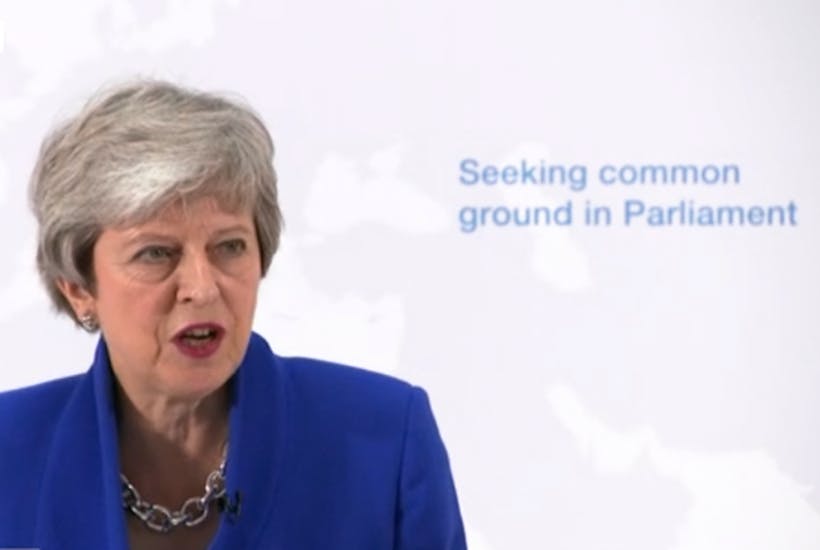Theresa May had one last roll of the dice in the Brexit saga this afternoon. In a speech entitled ‘New Brexit Deal’, the British Prime Minister threw the kitchen sink at passing her deal on a fourth vote. With May expected to step down if her proposal is rejected again after recess, she made an appeal to Members of Parliament to get behind a Brexit deal. May conceded that the ‘challenge of taking Brexit from the simplicity of the choice on the ballot paper to the complexity of resetting the country’s relationship with 27 of its nearest neighbors’ had ‘proved even harder’ than she had anticipated:
‘While it has proved even harder than I anticipated, I continue to believe that the best way to make a success of Brexit is to negotiate a good exit deal with the EU as the basis of a new deep and special partnership for the future.’
In a bid to convince MPs to back the deal, May unveiled a host of changes to the deal which will be written into the Withdrawal Agreement Bill (WAB). The biggest concession concerns a second referendum. May says MPs will get a vote on whether to hold another referendum if they back the EU Withdrawal Agreement Bill. Were they to vote for this, the idea is the government would provide government time to legislate for this. However, it’s worth noting that given that MPs still believe there are not the numbers in the Commons for a second referendum, this is still an unlikely prospect.
Other changes include new guarantees on workers’ rights and environmental protections. These are all aimed at making the offer more palatable to Labour MPs. MPs will also get a consultation on the government’s negotiating position – something Labour MPs including Gareth Snell had asked for. In a bid to tempt the Democratic Unionists, May has promised a Stormont lock to keep Great Britain aligned with Northern Ireland even in the event the UK does fall into the backstop:
‘It will commit that, should the backstop come into force, the government will ensure that Great Britain will stay aligned with Northern Ireland. We will prohibit the proposal that a future government could split Northern Ireland off from the UK’s customs territory.’
As for wooing Brexiteers, May has said there would be a legal obligation on the government to find alternative arrangements to maintain an open border in Northern Ireland by the end of 2020. This is aimed at preventing the backstop from ever coming into force.
So will it be enough to convince MPs? The bulk of the changes have been previously mooted – and are now simply being formalized.
Speaking of the new offer, May warned MPs that voting against her deal could mean leaving the EU with a deal would be ‘dead in the water’. As I said on The Spectator’s UK site earlier, Brexiteers are moving away from backing the deal – on the grounds that May will go soon and a Brexiteer leader may be able to turn things around.
The problem with offering so many changes is that one concession that appeals to Brexiteers is offset by several aimed at Labour votes, which only alienates the Brexiteers. It follows that May is still on course for defeat next month unless something significant changes between now and then. In fact, the scale of backlash from MPs in her own party in response to the speech means that there’s a chance May doesn’t even get to hold a vote on it – her party could move to prevent her from doing so if defeat looks inevitable.
This article was originally published on The Spectator’s UK website.


















